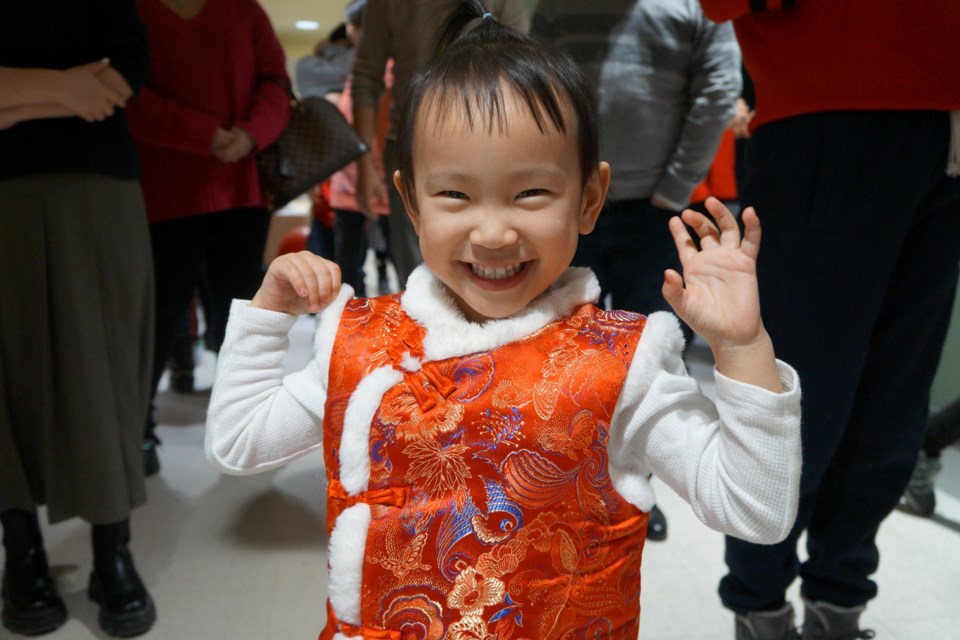The Chinese Association of Greater Sudbury (formerly Chinese Heritage Association of Northern Ontario) is once again hosting Chinese New Year celebrations, and this year the Feb.17 event it is open to the public.
In 2023, the venue was so filled with guests they almost ran out of room, with 100 expected and almost 250 arriving, the association wanted to open their doors to their Sudbury community.
The traditional Chinese calendar is a lunisolar calendar based on astronomical observations of the Sun’s position in the sky and the Moon’s phases. A lunar month is the time between the new moon and the full moon.
This ancient calendar dates back to the 14th century BCE (whereas the Gregorian calendar was introduced in 1582).
The Chinese lunisolar calendar shares some similarities with the Hebrew calendar, which is also lunisolar, and it has influenced other East Asian calendars, such as those of Korea and Vietnam.
Because the Chinese calendar defines the lunar month containing the winter solstice (Dec.21) as the 11th month, the Lunar New Year usually falls on the second new moon after the winter solstice.
This year, that’s Feb. 9, just like New Year according to the Gregorian calendar (January 1), Lunar New Year celebrations start on the night before the first day of the new year.
In China, the festivities would continue all week, and so the celebration here in Sudbury is hosted one week later, on Saturday, Feb. 17.
Chinese New Year 2024 is a Year of the Dragon, more specifically, the Wood Dragon, and will last until Jan. 28, 2025. The lunar new year is marked by 12 animal signs in a specific order: Rat, Ox, Tiger, Rabbit, Dragon, Snake, Horse, Sheep, Monkey, Rooster, Dog and Pig.
In use for more than 2,000 years, the 12 Chinese zodiac animals not only are used to represent years in China, but also believed to influence people’s personalities, career, compatibility, marriage and fortune.
Chinese New Year, or Lunar New Year, is based on the moon calendar. A lunar month is the time between the new moon and the full moon. In 2023, Jan. 21 is the eve of the Jan. 22 New Year’s Day.
One of the legends of Lunar New Year festivities origin is the story of the monster, Nian.
Nian would attack villages on Lunar New Year’s eve until one man, a mysterious stranger, arrived and survived an attack by the monster, and the village was left untouched. When asked how, the man told the village he scared Nian away by hanging red banners on the door, wearing red and lighting firecrackers, traditions that continue today.
Last year, Sudbury.com was invited to enjoy the event, and learned about everything that goes into the Lunar New Year celebrations.
The preparation begins early in the day. Not just food preparation, but the hanging of banners contained auspicious phrases in Mandarin and Cantonese wishing attendees “good health” (“shen ti jian kang” or “san tai gin hong”), “safe journey” (“chu ru ping an” or “Ceot jap peng on”) or “good fortune” (“Fu” or “Fuk”).
That, and sometimes 10-to-15-day festivities that go on behind the scenes.
The week before, on the 24th day of the lunar new year month, festive cakes and puddings are made. A big cleanup is done in homes on the 28th day of the last lunar month; this is done to rid the home of bad luck from the previous year and make it hospitable for the new luck of the year to stay.
And then, on Lunar New Year’s Eve, the fest. A family reunion dinner — and in this case, a reunion of the newcomers to Sudbury — that brings everyone together to celebrate.
Traditional garb included the han ming, Tang suits, and cheongsam (also called Qipao).
Tickets for this year are $60, (children under 12 are $20, children under 2 are free) and include Chinese buffet, prizes, traditional music and dancing as well as “lucky money envelopes” for the children.
Hosted at the Caruso Club (385 Haig St) beginning at 6:00 p.m., tickets are available online here, and more information can be found at SudburyChinese.org
